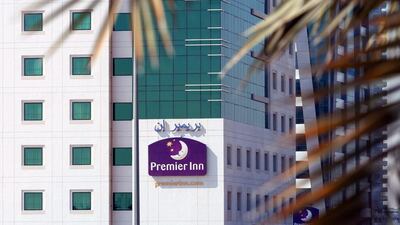Long known for its fondness for luxury brands, the hotel landscape in the UAE has gradually diversified as more four-star and budget properties came online this year.
Economy hotels still form a minority of the total room inventory, but they make up an important part of the effort from the tourism agencies of Dubai and Abu Dhabi to cater to visitors on different budgets.
Dubai, for its part, needs more economy hotels to cater to the 20 million visitors expected in 2020, the city’s Expo year.
The annual growth rate of economy hotels is still the lowest.
Of the 86 hotels and 25,000 rooms that are under construction in Dubai, eight are in the midscale and upper-midscale range, accounting for around 2,500 rooms, according to the research company STR Global. Currently, 149 hotels, or 40 per cent, out of Dubai’s 351 hotels are in the upper-midscale to economy categories.
In Abu Dhabi, of the 8,242 rooms from 27 hotels that are under various stages of construction, two are midscale, accounting for 651 rooms. As of now, 35 hotels, or 38 cent of the 91 hotels in the emirate, are in the upper-midscale to economy categories.
The number of economy hotels in Dubai is expected to grow by 2.9 per cent this year compared to the previous year, according to an STR Global spokeswoman.
Between 2009 and 2010, during the global economic downturn, Dubai's economy hotels "added strongly to the supply", she said. They grew 7 per cent annually in 2009 and 28 per cent in 2010.
Ajman-based R Hotels, which is a unti of R Holding, is building a 192-room three-star hotel on Al Mina Road in Jumeirah. In November, it announced Palm Jumeirah’s first Sharia-compliant hotel, which is to be a four-star property.
“The Palm, which is an upmarket destination, has a good number of five-star properties from various international hotel chains and we aim to offer a suitable option for travellers who would like to stay in this location,” said Sumair Tariq, the managing director of R Hotels.
The property will be aimed at leisure, family and business travellers from the Arabian Gulf region and Europe.
Dubai’s tourism agency last year upgraded the star classification system, which had been in place since 1998. The new system includes a “budget” rating along with one to five-star ratings. Besides that, hotels can specify whether they are desert, heritage, business or beach facilities. The star rating is based on the amenities available. For example, a hotel must have a swimming pool and banquet facilities to be called a five-star. Most hotels, including the midrange ones, have such facilities. But room rates differ according to the luxury.
The new Four Seasons hotel on Jumeirah Beach Road has rates starting at Dh2,200 per room on Christmas Day, while rooms start at Dh291.67 at the three-star Premier Inn in Dubai Silicon Oasis.
The Dubai government in January exempted new three and four-star hotels that begin operation before June 2017 from the 10 per cent Dubai Municipality fee. It also allocated government land and additional incentives to develop three and four-star hotels. Under the new ruling, the pre-approval process to build hotels will now take two months instead of six.
Forty hotels with a total of 7,500 to 8,500 rooms are expected to be built on the 40 plots that Dubai Holding has identified across its Tecom business parks and Dubai Properties Group districts.
Dubai’s holiday home operators were expected to win their licences by June, according to a ruling from the Dubai Department of Tourism and Commerce Marketing. Such accommodation caters to families and gives an alternative to the expensive luxury hotel rooms in prime locations such as Palm Jumeirah.
Apart from making approaches to list their properties, residents are also letting out homes on online portals such as Airbnb. There were about 234 rentals available for one recent weekend in Dubai. But it is not clear whether such lettings come under any government regulation.
In Dubai, India’s Suba Group of Hotels opened a four-star, Sharia-compliant property in Al Rigga, Deira, in August to cater to the rising number of business travellers from India transiting through Dubai.
It has already invested Dh10 million to lease another property besides looking to spend about Dh100m to build a four-star property near Dubai World Central’s Al Maktoum International Airport.
The French hotel operator Accor and the Indian real estate developer Hiranandani Group are developing the 350-room ibis Styles hotel in Dubai’s Business Bay, expected in the middle of 2016.
The Hong Kong-based hotel operator Swiss-Belhotel, which manages luxury and budget accommodations, took over the operation of a palace guesthouse in Ghantoot, Abu Dhabi, close to Jebel Ali in Dubai in June. The property is undergoing refurbishment to turn it into a four-star resort.
Byblos, a Dubai hotel operator, is building a 144-room, Dh180m Byblos Palm Jumeirah Hotel on the trunk of the island. It would be the first four-star property in the neighbourhood. In September, it opened the Dh100m, three-star Al Sarab Hotel on Al Rigga Road in Dubai with 84 rooms.
In Abu Dhabi, Accor opened the four-star Novotel Abu Dhabi Al Bustan with 361 rooms in March and the Adagio Abu Dhabi Al Bustan with 279 apartments in July.
ssahoo@thenational.ae
Follow The National's Business section on Twitter

